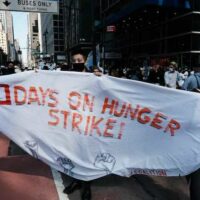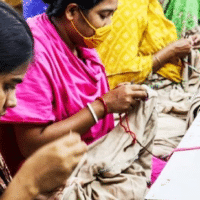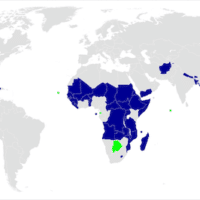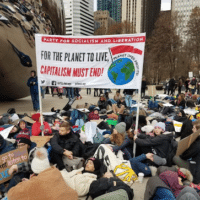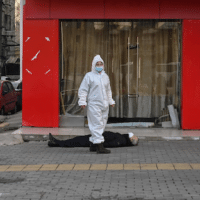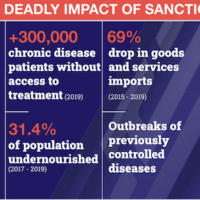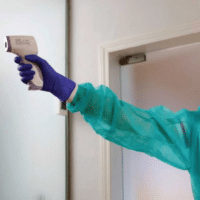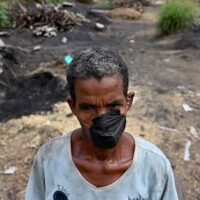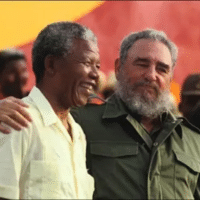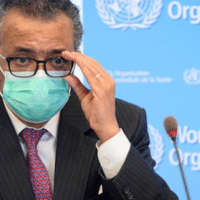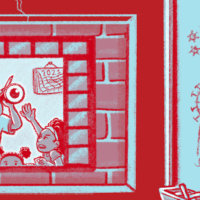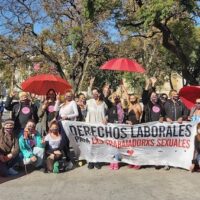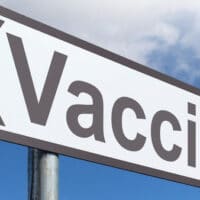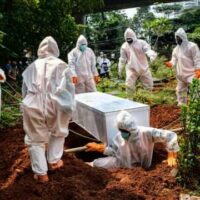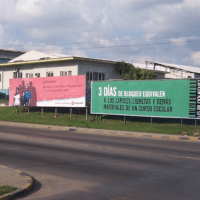-
10 charts on the State of U.S. workers on the 2nd pandemic Labor Day
While workers are continuing to struggle under Covid, corporate lobbyists are converging on Capitol Hill to block proposed pro-labor reforms.
-
Multinational Corporations and COVID-19: Intellectual property rights vs. human rights
The multilateral trading system anchored by the WTO is not confined to cross-border trade in physical goods.
-
Allow least developed countries to develop
The pandemic is pushing back the world’s poorest countries with the least means to finance economic recovery and contagion containment efforts. Without international solidarity, economic gaps will grow again as COVID-19 threatens humanity for years to come.
-
Supreme Court ended eviction moratorium, but pandemic has shown road map for fighting back
The Supreme Court callously ended the CDC’s eviction moratorium, but the pandemic has already shown the most effective way to fight back: direct actions.
-
Workers refuse to shoulder the burden for the bosses’ climate crisis
The United Nations issued a “code red for humanity” warning earlier this month with over 3,000 pages of scientific documentation saying that the climate crisis has reached a point where we can expect extreme weather including heat waves, flooding and droughts to happen with more frequency and intensity.
-
Corporate media politicize WHO investigation on Covid origins to vilify China
One key factor in spreading suspicion that the coronavirus might have escaped from the Wuhan Institute of Virology (WIV) is media’s early and ongoing politicization of the World Health Organization’s investigation into the pandemic’s origins. Much of this politicization weaponizes Orientalist tropes about China being especially, perhaps genetically, untrustworthy—the sort of people who would unleash COVID-19 on the world.
-
Prioritising profits reversed health progress
Instead of a health system striving to provide universal healthcare, a fragmented, profit-driven market ‘non-system’ has emerged. The 1980s’ neo-liberal counter-revolution against the historic 1978 Alma-Ata Declaration is responsible.
-
‘The Blockade Against Venezuela: Measures and Consequences’
In recent years, the United States and its allies have unleashed a devastating blockade against Venezuela in hopes of triggering regime change.
-
Latin American socialism and the fight against COVID-19: Cuba, Venezuela, Nicaragua
Cuba, Venezuela, and Nicaragua all demonstrate what a society can do when it embraces a centralized system, people over profit, and solidarity. Not only are citizens protected, but the will to fight against threats like COVID-19 is all the stronger when nations are united behind a popular and radical project.
-
Privatised health services worsen pandemic
Decades of public health cuts have quietly taken a huge human toll, now even more pronounced with the pandemic. Austerity programmes, by the International Monetary Fund (IMF) and World Bank, have forced countries to cut public spending, including health provisioning.
-
Apocalypse or cooperation?
The perfect storm of COVID-19 and climate change, and the resulting economic damage, will most likely trigger much more social and political instability. Although substantially increased international cooperation can still avert this nightmarish scenario, the current state of global politics provides few grounds for optimism.
-
Cuban scientists pen letter to Biden rejecting ‘failed state’ claim
A broad representation of Cuban scientists will address a letter to U.S. President Joe Biden evidencing Cuba’s scientific and political capacity to face Covid-19, in an altruistic manner, despite the limitations of the U.S. blockade.
-
Cuba, China, Latin America and the World
Cuba only needs around 30 million syringes to vaccinate its entire population–that is a million dollars. This is a tiny sum for the countries, either together or even individually, which oppose the blockade of Cuba.
-
With COVID-19, World Health Organisation’s fall from grace is complete
In complete contrast to its founding ideals, the WHO is now captured by wealthy countries and corporations at the cost of millions of poor globally.
-
Dossier No. 43: CoronaShock and education in Brazil: One and a half years later
One and a half years since the beginning of the pandemic in Brazil, it is possible to better evaluate some of its effects. The most visible immediate aspect of the pandemic has certainly been the sudden suspension of in-person activities and the temporary closure of schools and universities.
-
Sex workers and COVID-19: Resisting the pandemic and criminalization
Georgina Orellano, secretary-general of the Association of Women Sex Workers of Argentina (AMMAR), says that “the pandemic has highlighted the inequality” in society and deepened the problems faced by sex workers. Sex work, which is not recognized in Argentina, has become more precarious, she says.
-
European duplicity undermines anti-pandemic efforts
Despite facing the world’s worst pandemic of the last century, rich countries in the World Trade Organization (WTO) have blocked efforts to enable more affordable access to the means to fight the pandemic.
-
A third coronavirus wave is washing over the world
In countries where public health restrictions were in place, they were half-baked or have been lifted too soon. Where they are imposing them now, it’s too late; the Delta variant of the coronavirus is surging around the world.
-
The United States tries to take advantage of the price Cubans are paying for the blockade and the pandemic
This small island of 11 million people has created five vaccine candidates and sent its medical workers through the Henry Reeve International Medical Brigade to heal people around the world.
-
Rich country hypocrisy exposed by vaccine inequities
World Health Organization Director-General notes, “The global failure to share vaccines equitably is fuelling a two-track pandemic that is now taking its toll on some of the world’s poorest and most vulnerable people.”

